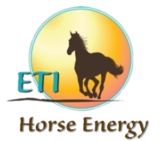The herd of horses and the social network
The herds of wild horses have very clear rules.
Even though it may seem like the herd is in chaos there is a very subtle and clear system of relationships between the different individuals in the herd.
The hierarchy is clear
The Alpha horse controls the herd with determination and wisdom
The alpha horse has a highly developed “horsesense”, and the herd trusts and listens to her.
The herd also protects the young foals, they enjoy “immunity,” if they bite an adult horse mischievously, the adult will gently push them away and not kick them hard.
Some of the laws of the herd are to protect the young individuals, who will continue the dynasties and DNA for future generations.
Man, like the horses, is a herd animal, and therefore basically the same rules exist in human herd.
A person is able to make real contact with up to 20 people, (like the number of wild horses in a herd in nature.)
Beyond that, these will be non-personal relationships, but rather social ones which are not anchored in emotion.
A person cannot truly love more than 15-20 people who are closest to him. That is his herd.
Therefore, people from large families are less likely to make social connections outside the family as they are surrounded by their herd.
Social networks do not really change the hierarchical order, but rather mark a network of connections like the energetic network, This is actually a link between different herds, as there is in nature during the spring season, when herds migrate to new places of pastures and meet.
Social networks, like the meeting of herds of horses in the wild, create new relationships between herds but most individuals tend to stay in their herd. There is often an exchange of information and genes between the herds.
These exchanges are essential for the renewal of databases and genes. Both horses and humans are a social herd animal, an evolutionary process in which the herd is necessary for protection and survival.
A horse that lives alone in the stable will feel very lonely and may become depressed, like a person in solitary confinement.
